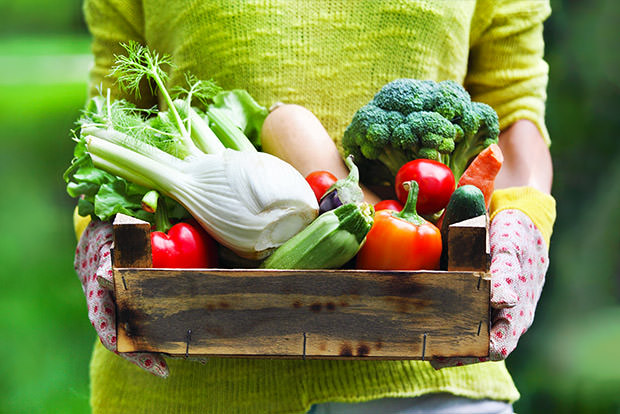
Plant-based foods are full of complex carbohydrates, vitamins, and minerals, but they also offer natural chemicals called phytonutrients that improve health. While these plant nutrients are not essential for normal body function, they are powerful in disease prevention – making plant foods an important part of a nutritious diet. Enjoying a variety of foods will help you maximize your intake of these phytonutrients.
Ellagic Acid
How it helps: A disease fighting phytonutrient. Research shows that ellagic acid may promote the death of cancer cells.
What to eat: Blueberries, cranberries, strawberries, raspberries, pomegranates, pecans, and walnuts
Gingerol
How it helps: These anti-inflammatory compounds may help reduce the pain and inflammation caused by osteoarthritis and rheumatoid arthritis.
What to eat: Ginger root
Glucosinolates
How they help: Glucosinolates breakdown into active compounds when vegetables are chopped or chewed. These compounds may fight cancer by preventing DNA damage from carcinogens or the creation of cancer cells.
What to eat: Arugula, bok choy, Brussels sprouts, broccoli, cabbage, cauliflower, kale, and radishes
Hesperidin
How it helps: This flavonoid has been found to reduce the inflammation associated with chronic disease reducing risks for cancer.
What to eat: Citrus fruits
Kaempferol
How it helps: This phytonutrient has been found to reduce the risk for chronic disease by inhibiting the growth of cancer cells.
What to eat: Broccoli, beans, endive, grapes, kale, leeks, strawberries, and tomatoes
Lycopene
How it helps: Some studies suggest that lycopene can reduce the risk of cancer by blocking the growth of cancer cells. It is also associated with a reduced risk for heart disease and age-related vision problems.
What to eat: Tomatoes, watermelon, pink grapefruit, guava, and papaya
Organosulfur Compounds
How they help: These compounds may protect against gastric and colorectal cancer. They may also reduce the the inflammation that is associated with cardiovascular disease.
What to eat: Chives, garlic, leeks, onions, and shallots
Quercetin
How it helps: Research shows that this flavonol may reduce the risk for asthma, cancer and heart disease.
What to eat: Apples, berries, grapes, and onions
Resveratrol
How it helps: This antioxidant has been linked to the prevention of blood vessel damage, reduced LDL (bad) cholesterol, and reduced risk for cancer.
What to eat: Blueberries, cranberries, red grapes, peanuts, and pistachios
Sources



 3 Healthy Lunches for Your Work Week
3 Healthy Lunches for Your Work Week
 5 Tips for Stretching Your Budget for Healthy Food
5 Tips for Stretching Your Budget for Healthy Food
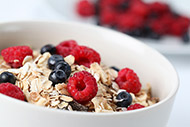 Best Ways to Reduce Added Sugar
Best Ways to Reduce Added Sugar
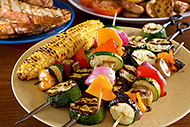 Healthy Tips to Lighten Up Picnic Foods
Healthy Tips to Lighten Up Picnic Foods
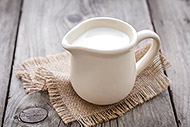 Do You Need to Drink Milk?
Do You Need to Drink Milk?
 Tips to Keep Track of Water Intake
Tips to Keep Track of Water Intake
 Butter vs. Margarine: What’s the Best Choice?
Butter vs. Margarine: What’s the Best Choice?
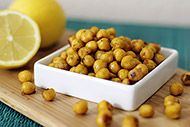 7 Good Mood Foods
7 Good Mood Foods

 Pinterest
Pinterest RSS Feed
RSS Feed